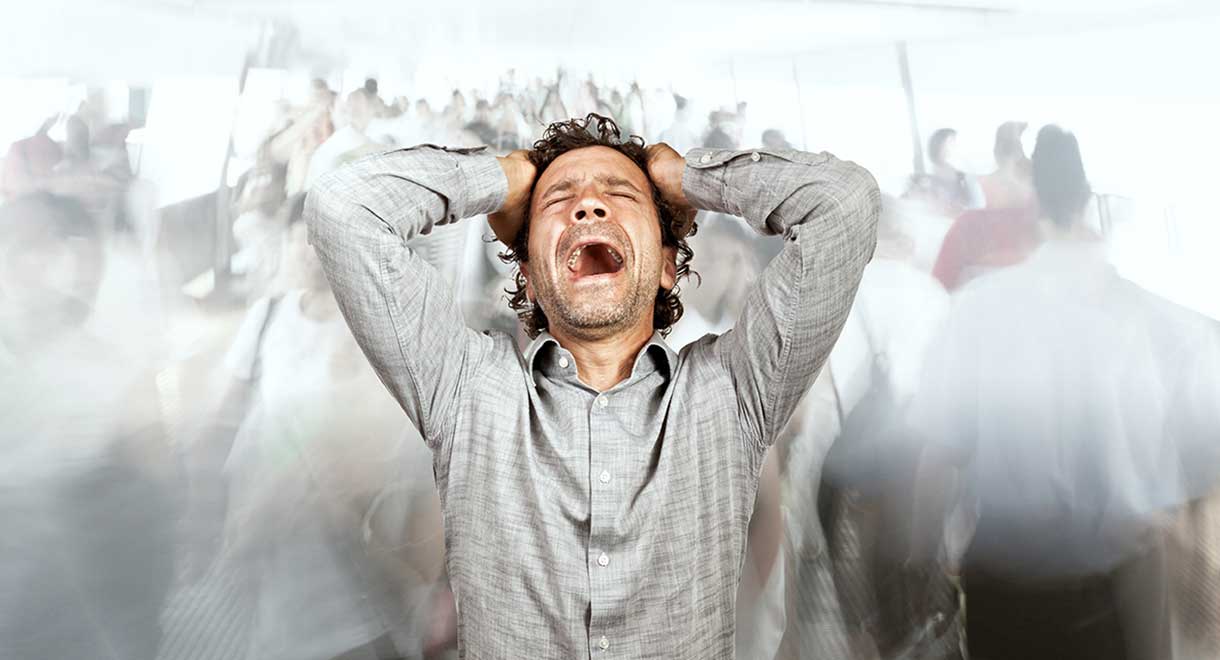Agoraphobia – Symptoms And Treatments
Agoraphobia is the irrational fear of being in open or crowded places or situations, with no help at hand, and from which escape might be difficult or embarrassing. This situation often produces a panic attack in those afflicted with this neurosis. Panic attacks are characterized by a feeling of overwhelming fear and a sense of impending doom.
Agoraphobia and symptoms
Physical symptoms such as nausea, sweating, shortness of breath, choking feeling, palpitations and dizziness are common. An agoraphobic person has often suffered a panic attack in, for example, a shopping center and then develops the belief that this will recur if they are in the same situation again. This is called anticipatory anxiety. Typical phobias include being in crowded places, travelling on public transport, leaving home alone and being in enclosed spaces. Agoraphobia is much more common in women than men and often begins in the late teens or early twenties. The condition may become chronic, lasting for many years, and may wax and wane with some periods of complete remission. The severity can range from mild avoidance of distressing situations to the person becoming completely housebound, afraid to venture out at all.
Agoraphobia and treatment
Most treatment is aimed at reducing anxiety symptoms whilst learning to face your fears. In this regard many psychiatrists will combine using anti-depressant medications with behavioral therapy. Behavioral therapy needs to be tailored for the individual and involves understanding triggers, re-educating thought patterns, using distractions and relaxation methods. Commonly a desensitization method is used to manage avoidance behavior. This might involve the following steps:
- Making a list of phobic areas from mild to extreme, for example lifts, eating in public, being alone, supermarkets.
- Writing a plan of each step of a proposed outing and setting a number of goals. Also making a cue card of distracting techniques.
- Mentally rehearsing the outing and visualizing a successful outcome.
- Doing some relaxation exercises before leaving the house.
- The first few outings can be with a therapist or trusted friend, then it is suggested to go alone.
- Outings should be for one to two hours and should be followed by “debriefing” and positive feedback with a therapist.
Agoraphobia and medications
The most common types of drugs used in the treatment of agoraphobia are sedatives (such as benzodiazepines, of which “Valium” is probably the best known). These should be used as a last resort and then only for the shortest time possible. They can be highly addictive and long term use may produce gradual memory impairment and personality changes. Although they may seem effective, the anxiety is really only being suppressed; it is just the symptoms that are relieved. A better alternative would be to combine behavioral therapy with hypnosis, meditation and “natural tranquillizers”.
A much better alternative to sedative drugs is the class of drugs known as the Selective Serotonin Reuptake Inhibitors (SSRIs). These drugs increase the levels of serotonin in the brain and thus prevent panic attacks. The SSRIs also help overcome depression and mood disorders and promote a deep restful sleep. Examples of these drugs are: paroxetine, venlafaxine, fluoxetine. The SSRI drugs also increase self esteem and reduce shyness. SSRI medications are not usually habit forming and very low doses can be effective.
Natural tranquillizers
Although they may take longer to work, these supplements will not cause side effects and will boost your feelings of general well-being. They are not addictive.
See my book called Magnesium – The Miracle Mineral. Magnesium is essential for hundreds of chemical reactions that take place in the body every second and can really help you to relax, if taken every day.
Recommend supplements for agoraphobia
- Magnesium Tablets or Magnesium Powder
Take 2 tablets twice daily or 1 teaspoon daily – Magnesium has a regulating effect upon the nervous system, exerting an overall relaxing effect. Magnesium is very useful for sleep, anxiety and stress related disorders and panic attacks.
- Blues Free (Depression Free)
Take 1 to 2 capsules daily – Serotonin Support – helps relieve symptoms of excess stress, mild depression, anxiety, irritability, sleeplessness and nervous tension.
- Everyday Stress Lozenges
Everyday Stress Lozenges are a natural herbal relaxant.
The above statements have not been evaluated by the FDA and are not intended to diagnose, treat or cure any disease.


Leave A Comment